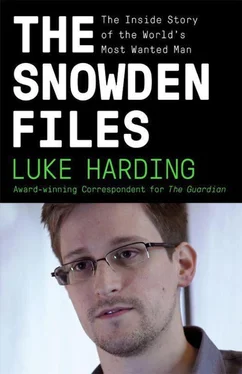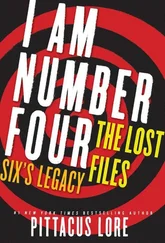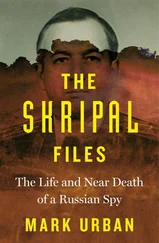‘Of all the journalist ethical dilemmas you have to face in life, it was a fairly big one,’ Rusbridger says.
He decided to ask some trusted staff to make a detailed study of the files. The data-set was unwieldy. A few documents were obviously sensitive. But the majority were confusing and corporate: PowerPoints, training slides, management reports, diagrams of data-mining programs. Much was unclear, although it was evident that GCHQ’s technical capacities and sheer ambition were very great. And that GCHQ’s ‘special relationship’ with its sister organisation the NSA went surprisingly deep.
The Guardian team set up a small ‘war room’ and were tough about security. A guard was posted 24 hours a day on the corridor to check IDs against a highly limited list. All phones were banned: a row of BlackBerrys and smartphones sat on a table outside with their owners’ names on yellow Post-it notes. The windows of the bunker were papered over. All the computers were new. None had ever been connected to the internet or any other network – a precaution against hacking or phishing attacks. They were to remain ‘air-gapped’ throughout.
Multiple passwords were needed to log in; no staff member knew more than one password. Work was written and saved on USB sticks; nothing went on the network. In the corner an air-conditioning unit gave off a low hum. There was also a shredder.
Without natural light and strictly off-limits to cleaners, the bunker soon became frowsty. ‘It smells like a teenage boy’s bedroom in here,’ said one visitor.
Posted onto a whiteboard was a memo from Rusbridger: ‘Edward Snowden approached the Guardian because he says people have no idea of the extent of what he regards as the surveillance state. He argues that technology has run ahead of the law or the ability of anyone – citizens, courts, press or Congress – to have meaningful oversight of what is happening. This is why we have the documents.’
The memo added: ‘We should search for material relevant to these concerns which are of high public importance. We are not engaged in a general fishing expedition.’
The team interrogating Snowden’s material was made up of trusted senior journalists. It included Nick Hopkins, the Guardian ’s defence and security editor, data editor James Ball, veteran Nick Davies and Julian Borger, who shuttled between London and New York. Greenwald in Brazil was lead reporter. MacAskill operated out of the US.
Having the material was one thing, making sense of it another. At first the reporters had no idea what ‘strap one’ and ‘strap two’ meant. It was only later they realised these were classifications beyond top secret. Greenwald had given MacAskill one helpful clue – look for a program called TEMPORA. On day one the team stayed until midnight, returning the next day at 8am. The process became easier when TEMPORA led them to GCHQ’s internal ‘Wiki’, which Snowden had uploaded. Mostly, it was written in plain English.
Soon the board was covered in the codenames of NSA/GCHQ programs – SAMUEL PEPYS, BIG PIGGY, BAD WOLF. The early stages of document analysis were heavy-going. ‘The documents were seriously technical, fantastically dull and utterly brilliant,’ Hopkins says. Hopkins would shout: ‘What does QFD mean?’ Someone would answer: ‘Query-focused database.’ And what’s a ‘10gps Bearer’? Or MUTANT BROTH? MUSCULAR? EGOTISTICAL GIRAFFE? And so on.
One of the first shocks revealed was that GCHQ had bugged foreign leaders at two G20 summit meetings hosted in London in 2009. Labour premier Gordon Brown and foreign secretary David Miliband apparently authorised this spying.
The agency had set up fake local internet cafes equipped with key-logging software. This allowed GCHQ to hack delegates’ passwords, which could be exploited later. GCHQ also penetrated their BlackBerrys to monitor email messages and phone calls. A team of 45 analysts kept a real-time log of who phoned whom during the summit. Turkey’s finance minister and 15 other members of his delegation were among the targets. This had, of course, nothing whatever to do with terrorism.
The timing of the Guardian ’s discovery was piquant. David Cameron was about to host another international summit for G8 countries on the picturesque banks of Lough Erne in Northern Ireland. Presidents Obama and Putin would be dropping in, and other heads of state. Would GCHQ bug them too?
Fearing an injunction any moment, Paul Johnson decided to rush a print edition on to the British streets. On Sunday 16 June, he rolled 200 special copies off the press in the early evening. Another 30,000 copies were printed at 9.15pm. This made it harder for any late-night judge to order ‘Stop the presses!’ and prevent distribution. They would be too late.
That evening Rusbridger’s phone rang. Retired Air Vice-Marshal Andrew Vallance was on the line. Vallance ran the uniquely British ‘D-Notice’ system, under which the government discreetly discourages the media from publishing stories said to endanger national security.
In 1993, as part of a tentative move towards glasnost, they were rebranded Defence Advisory (DA) notices. This change was meant to reflect the fact that it was voluntary whether or not to seek government advice.
Whether ‘voluntary’ or not, DA notices could be generally relied on to dampen media coverage. Vallance had already issued a ‘private and confidential’ notice not only to the Guardian itself but to the BBC, Sky and other UK broadcasters and newspapers. On behalf of GCHQ it discouraged them from following up Guardian US’s original PRISM scoops. British media largely complied and barely covered the story. Now, he made clear his concern that the Guardian had failed to consult him in advance before telling the world of the G20 snooping.
This was the beginning of a struggle between the British government and the Guardian . Since David Cameron became Conservative prime minister in 2010, Rusbridger had barely spent half an hour with him. ‘It wasn’t a warm or constructive relationship,’ he says. But the following day, while Cameron was hosting the G8 leaders at Lough Erne, his press officer Craig Oliver slipped out and called Rusbridger. With Oliver, a former BBC editor, was Sir Kim Darroch, a senior diplomat and the government’s national security adviser.
Sniffing – he was suffering from hay fever – Oliver said the Guardian ’s G20 story risked ‘inadvertent damage’ to national security. He said officials were unhappy with the G20 revelations, and some of them wanted to chuck Rusbridger in jail. ‘But we are not going to do that.’
Rusbridger said that the Guardian was handling Snowden’s leaked material in a responsible manner. Its focus wasn’t operations or names, but the boundaries between security and privacy. The paper was willing to engage with Downing Street on future stories, he added, and to listen to any specific security concerns.
Coming down the pipeline was the TEMPORA article, about Britain’s feats of ‘Global Telecoms Exploitation’. This, as Rusbridger knew, might provoke even more trouble from Britain’s spymasters.
He offered Oliver a conference call in which the Guardian would lay out key details of the TEMPORA story in advance. The aim was to avoid genuine national security damage – and an injunction. Gibson had used the same approach in the US in her dealings with the White House, and Rusbridger had a similar dialogue with the US State Department in 2010, in advance of publishing some of its WikiLeaks cables. Oliver agreed the government wanted a ‘sensible conversation’. But, asked about possible injunctions, he refused to give any assurances, saying vaguely: ‘Well, if the story is mega…’
Читать дальше












